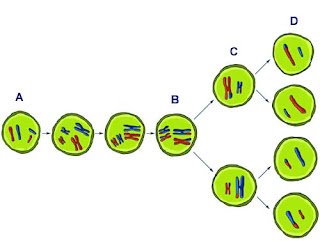I'm back again wanting to rant some more and yet again I don't know what to rant about. Something that makes my blood boil, perhaps?
Well, being 17 I haven't witnessed or experienced as much as some of you... older members. Doesn't mean I'm stupid though. The young adult section in book stores irritates me as it kind of assumes this. We're too old to appreciate works like Harry Potter (one of my favourite series), but are much more likely to enjoy reading a load of tripe about sparkly vampires. Forgive if I'm wrong, but the last time I checked the young adult demographic consists of more than just girls. I don't mean to be offensive to males who read Myers 'work' but it is mainly females who read it.
The YA section doesn't have the opportunity to annoy me as much as it does others as I (don't shoot me) buy my books online. It is pleasing to see that places like Amazon have avoided the dreaded YA section and instead make the cut off at children.
Yes, I buy my books online. I know that for many the fact that book stores are dying out is saddening, and in many respects it is. But we need to be honest with ourselves, it is far easier to order online and with places like Amazon having free delivery it is hard to see a reason not to. The prices are often cheaper so that makes up for the fact I have to wait a few days for the book to arrive.
It annoys me when people moan at me for buying online. Why should I pay more, travel further and risk not being able to get the book I want, when I don't have to? Book stores may have the benefit of being able to handle the book, see the page size and font, but that is about where it ends for me. Sure, people may say but you can try before you buy when you go to a shop, but you can online too. Amazon has a preview feature which allows you to read a fair amount of the book before you buy it. Better still you're not blocking the bookshelf whilst you stand there engrossed in whatever it is you've picked up.
"But there is something about the musty smell of a book store." Yeah, OK that can't be recreated online, but I don't think the book shops which sell second hand, old books will die out. They will simply merge with other second hand stores or possibly have an online presence in addition to the store. Places like Waterstones don't, in my opinion, have the smell of old books simply because they are selling new books. For that reason I don't think the musty smell argument can compete with the 'loads of variety, 24/7 service' argument for online.
The real threat to high-street book stores is probably not even online. It is the supermarkets. Asda, Sainsbury's, Tesco, they are all starting to stock more and more popular books for less and less. People are buying on impulse in the supermarket as they do not always go purely to buy a book, but to go and buy their groceries. Then they spot a book they like and buy it. A lost sale for book stores which often work on impulse buys, too. When you shop online the chances are that you are not going to have a peek at every book, but search for a specific one, or perhaps go to a specific category. Online purchases are still impulse buys, but not as much as supermarket book purchases.
So, perhaps the loss of impulse book purchases is a shame. Not really, in my opinion. As online stores get bigger, they accommodate more types of user, including impulse buyers. You've all seen the Recommended section on Amazon, or received personalised emails suggesting your next purchase. These advertisements work off impulse. It is like walking down an aisle in Asda and spotting a book you like the look of and buying it. The only difference is that you are online so it is more likely to be appropriate to you.
This brings me onto another thing that really annoys me: People complaining about the loss of privacy when companies like Amazon, Google, Microsoft and supermarkets, collect data about you. Personally I welcome these companies to 'spy' on me. I would much rather see a book about writing fiction on the Amazon homepage than a book about expecting mothers! The fact is Amazon knows my web history based on the trail of cookies I leave as does Google. I want personalised ads; I want a better service from the companies I am paying money to; I want to be able to find things that interest me; I want emails that aren't spam, and actually contain content that I want to read. If this costs a small bit of my privacy so be it. I've got nothing to hide so it doesn't really affect me. The vast majority of these services operate an opt out policy so if you're looking for a place to bury the guy you killed without your wife becoming suspicious at the 'How to bury a body' books popping up on the homepage of Amazon then you can just turn off cookies in your browser, and use incognito/private browsing.
So, please stop moaning about your privacy being violated by companies wanting to earn more money by making your experience better. Correct me if I'm wrong but I can't think of anyone who would rather read mindless junk email instead of a list of products that are suited to them.
So, yet again it turns out that I do have stuff to say.
Thanks for reading, I'd love to hear your responses
Matt




